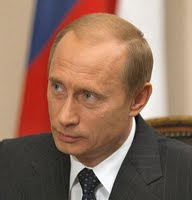
The U.S.-UAE 123 Agreement on civil nuclear cooperation is set to come into force now that the mandatory 90-day period of congressional review has passed. The deal has the firm backing of the Obama administration, which sees it as a model for countries looking to introduce nuclear energy to their territories. For the UAE, the deal represents a reaffirmation of its close ties to the West as well as a gateway to developing a source of energy that, for a number of reasons, makes sense for the Emirates. The third-party beneficiary of the agreement, of course, is France, with its […]



